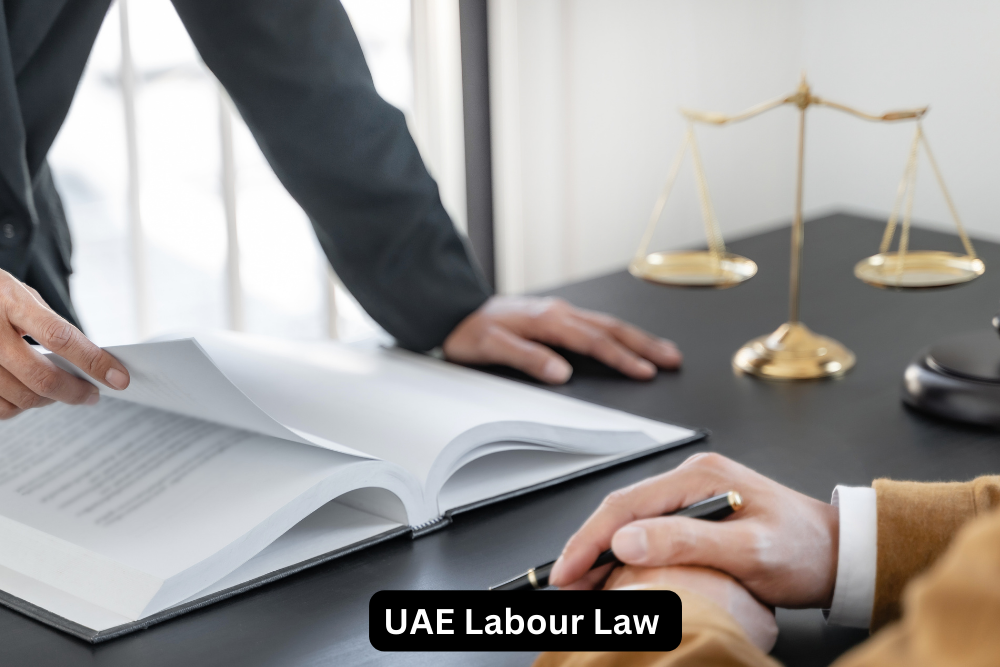The United Arab Emirates (UAE) has established a robust legal framework to govern employment relationships, ensuring fairness, transparency, and protection for both employers and employees. The UAE Labour Law, primarily governed by Federal Decree-Law No. 33 of 2021 (effective from February 2, 2022), outlines the rights, obligations, and regulations for all parties involved in the employment process. This guide provides a detailed overview of the UAE Labour Law covering key aspects such as employment contracts, working hours, leave entitlements, termination procedures, and dispute resolution.
1. Scope of Application
The UAE Labour Law applies to all employees working in the private sector across the UAE, including free zones, unless specific free zone regulations state otherwise. It does not apply to:
-
Employees of government entities.
-
Members of the armed forces, police, and security services.
-
Domestic workers (covered under a separate law).
2. Employment Contracts
Employment contracts are the foundation of the employer-employee relationship. The UAE Labour Law mandates that all employment contracts must be written and registered with the Ministry of Human Resources and Emiratisation (MOHRE).
Types of Employment Contracts:
-
Limited (Fixed-Term) Contract: A contract with a specific end date, not exceeding three years (renewable).
-
Unlimited (Open-Ended) Contract: A contract with no specified end date, which can be terminated by either party with notice.
Key Elements of an Employment Contract:
-
Job title and description.
-
Workplace location.
-
Start date and duration (for fixed-term contracts).
-
Salary and payment details.
-
Working hours and leave entitlements.
-
Termination conditions.
3. Working Hours and Overtime
The standard working hours for employees in the UAE are:
-
8 hours per day or 48 hours per week.
-
During Ramadan, working hours are reduced to 6 hours per day.
Overtime Regulations:
-
Employees are entitled to overtime pay for hours worked beyond the standard working hours.
-
Overtime pay is calculated as follows:
-
125% of the regular wage for overtime hours.
-
150% of the regular wage if overtime is performed between 10 PM and 4 AM.
-
Additional compensation or time off can be agreed upon between the employer and employee.
-
4. Leave Entitlements
The UAE Labour Law guarantees various types of leave for employees:
Annual Leave:
-
Employees are entitled to 30 days of paid annual leave after completing one year of service.
Sick Leave:
-
Employees are entitled to 90 days of sick leave per year, with the first 15 days fully paid, the next 30 days half-paid, and the remaining 45 days unpaid.
Maternity Leave:
-
Female employees are entitled to 60 days of maternity leave, including:
-
45 days fully paid.
-
15 days half-paid.
-
-
Additional unpaid leave of up to 45 days is available for pregnancy-related illnesses.
Parental Leave:
-
Employees are entitled to 5 days of paid parental leave within six months of childbirth.
Public Holidays:
-
Employees are entitled to paid leave on official public holidays as declared by the UAE government.
5. Wages and Benefits
Employers are required to pay employees their wages on the agreed-upon date, as specified in the employment contract. The UAE Labour Law also mandates:
-
Equal pay for men and women performing the same work.
-
Payment of end-of-service gratuity for employees who complete at least one year of service.
End-of-Service Gratuity:
-
Employees are entitled to a gratuity payment calculated as follows:
-
21 days' wages for each year of service for the first five years.
-
30 days' wages for each additional year.
-
6. Termination of Employment
The UAE Labour Law outlines specific procedures for terminating employment contracts:
Termination by Employer:
-
Employers must provide a valid reason for termination and give written notice:
-
30 days' notice for unlimited contracts.
-
As per the contract terms for limited contracts.
-
-
Employees are entitled to compensation if terminated without cause.
Termination by Employee:
-
Employees must provide written notice as per the contract terms.
-
Immediate termination is allowed in cases of non-payment of wages, harassment, or unsafe working conditions.
End-of-Service Benefits:
-
Employees are entitled to their end-of-service gratuity, unused leave, and any other dues upon termination.
7. Dispute Resolution
The UAE Labour Law provides mechanisms for resolving disputes between employers and employees:
Steps for Dispute Resolution:
-
Amicable Settlement: Parties attempt to resolve the dispute through mutual agreement.
-
MOHRE Mediation: If no settlement is reached, the case is referred to the Ministry of Human Resources and Emiratisation.
-
Labour Court: Unresolved disputes are escalated to the Labour Court for a final decision.
8. Employee Rights and Protections
The UAE Labour Law ensures several protections for employees, including:
-
Protection against discrimination based on race, gender, or religion.
-
Safe and healthy working conditions.
-
Protection from harassment or abuse in the workplace.
9. Employer Responsibilities
Employers are required to:
-
Provide a safe and conducive work environment.
-
Pay wages on time and in full.
-
Comply with all provisions of the UAE Labour Law.
Conclusion
The UAE Labour Law is a comprehensive legal framework designed to protect the rights of both employers and employees while promoting a fair and productive work environment. By understanding the key provisions of the law, including employment contracts, working hours, leave entitlements, and termination procedures, both parties can ensure compliance and foster positive working relationships. Whether you are an employer or an employee, staying informed about your rights and responsibilities under the UAE Labour Law is essential for navigating the workplace effectively and avoiding potential disputes.
